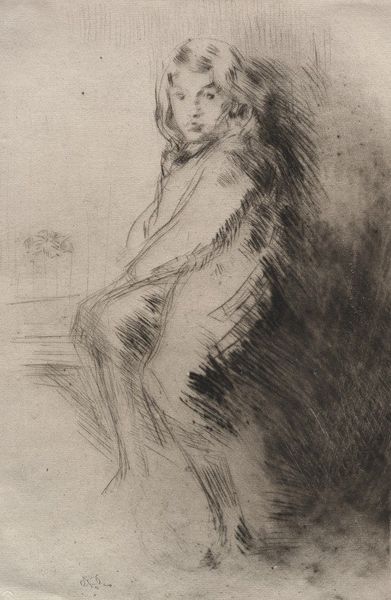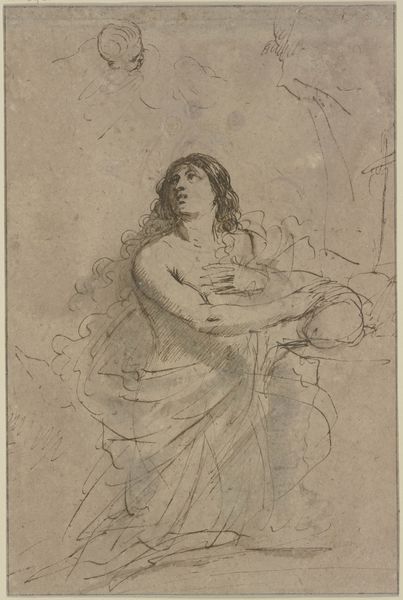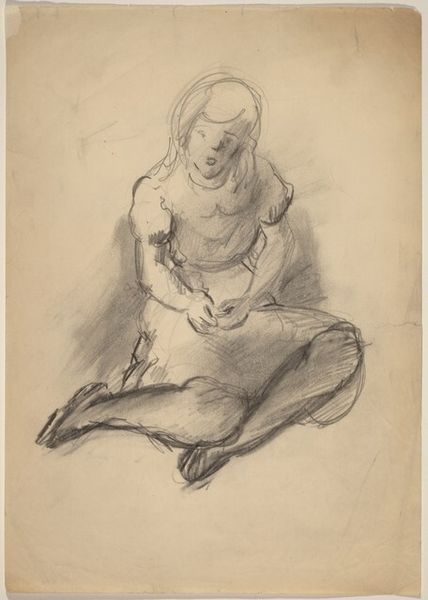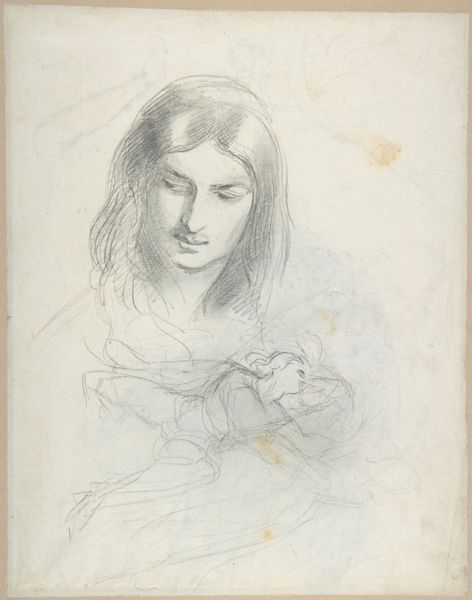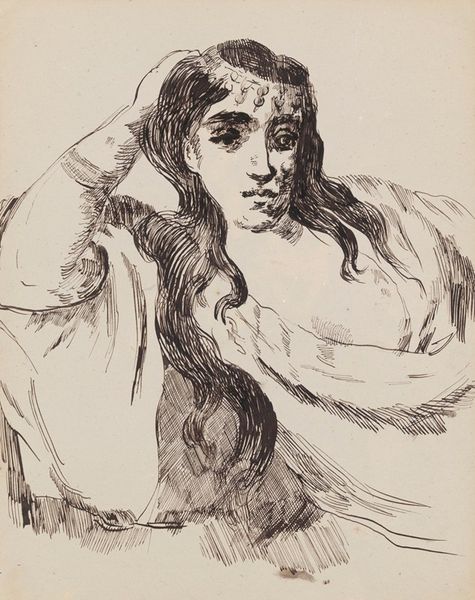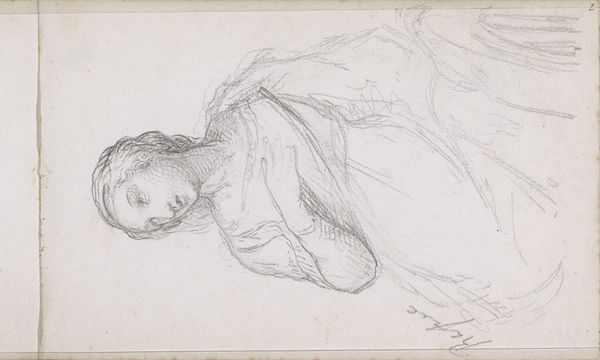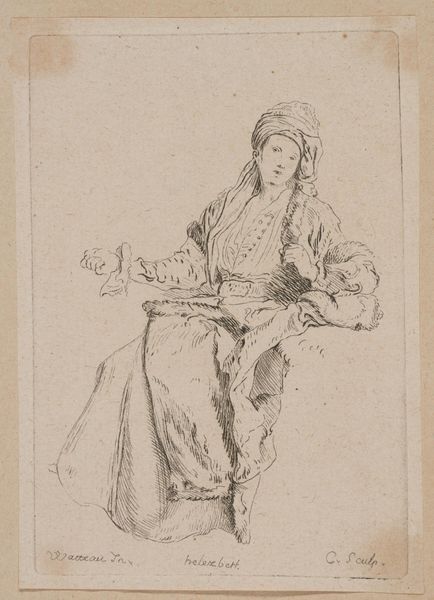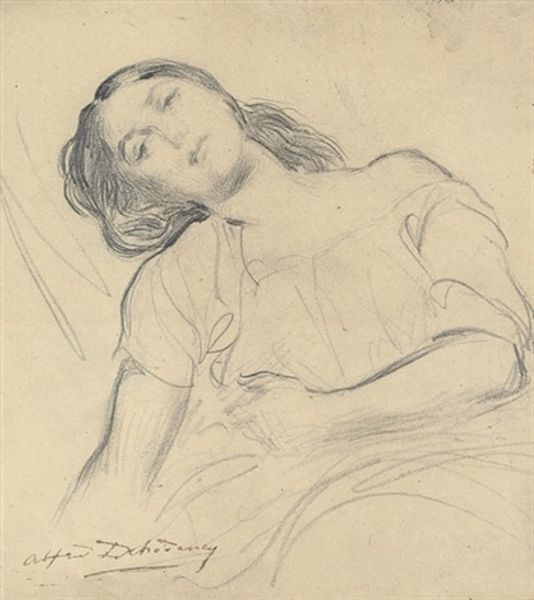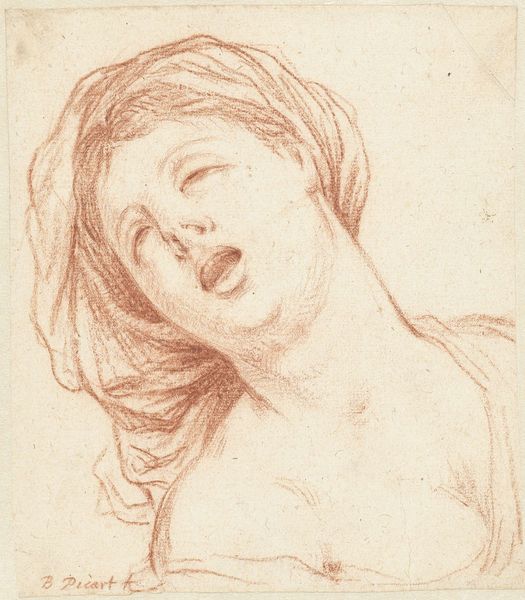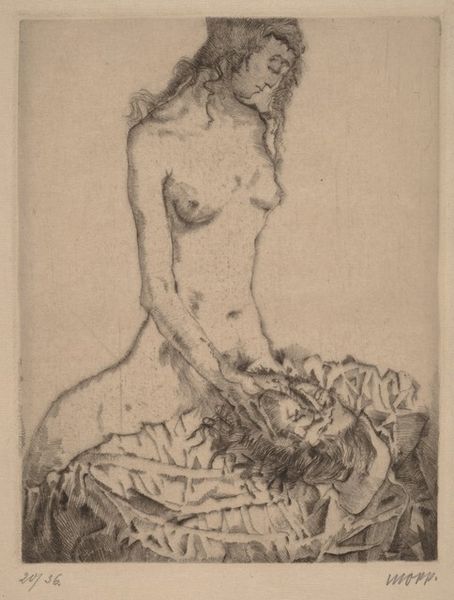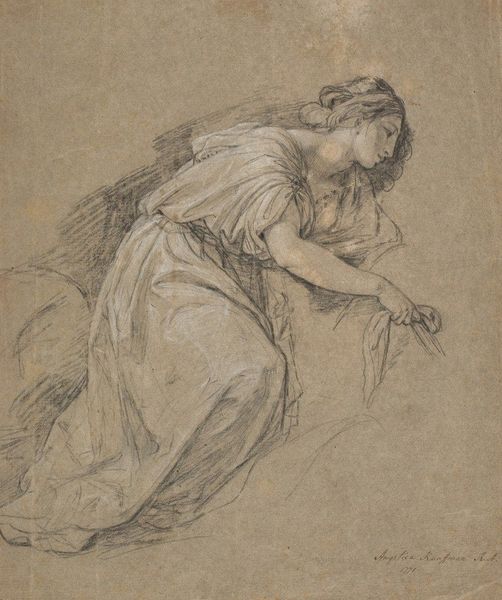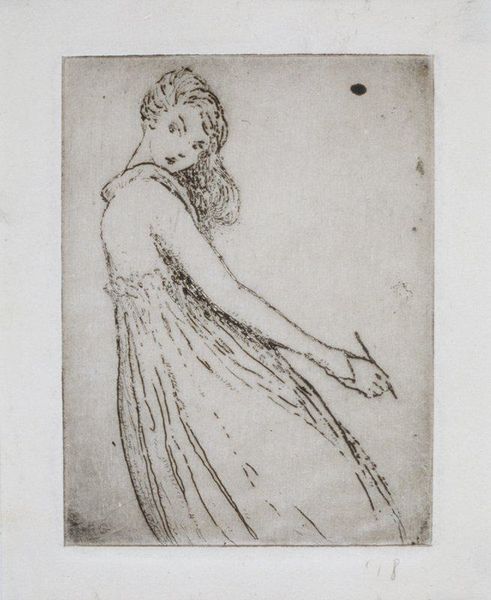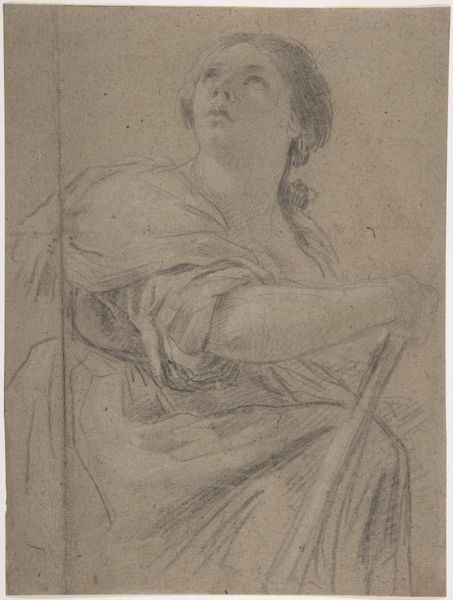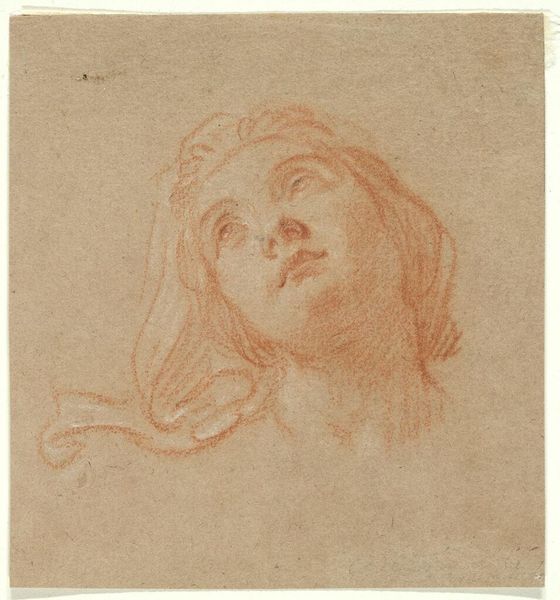
drawing, pen
#
portrait
#
drawing
#
baroque
#
pencil drawing
#
pen
#
portrait drawing
#
history-painting
#
italian-renaissance
Copyright: Public Domain: Artvee
Guercino made this drawing of a Sibyl holding a scroll in Italy, sometime in the first half of the 17th century. Figures like sibyls and prophets enjoyed a renewed vogue during the Renaissance and Baroque periods. In the context of the Counter-Reformation, these figures served to link classical antiquity with Christian revelation, and they represented the wisdom and knowledge that the Church saw itself as preserving. Looking closely, the image shows a woman in antique dress holding a scroll containing indecipherable writing. She is a classical figure, but what would she have meant to a contemporary audience? The art of Guercino’s time often functioned as propaganda for the Church, and this image is no exception. As art historians, we can research this by looking at the writings of theologians, Church historians, and the archives of institutions to give us a better understanding of the context in which art is created and received.
Comments
No comments
Be the first to comment and join the conversation on the ultimate creative platform.
